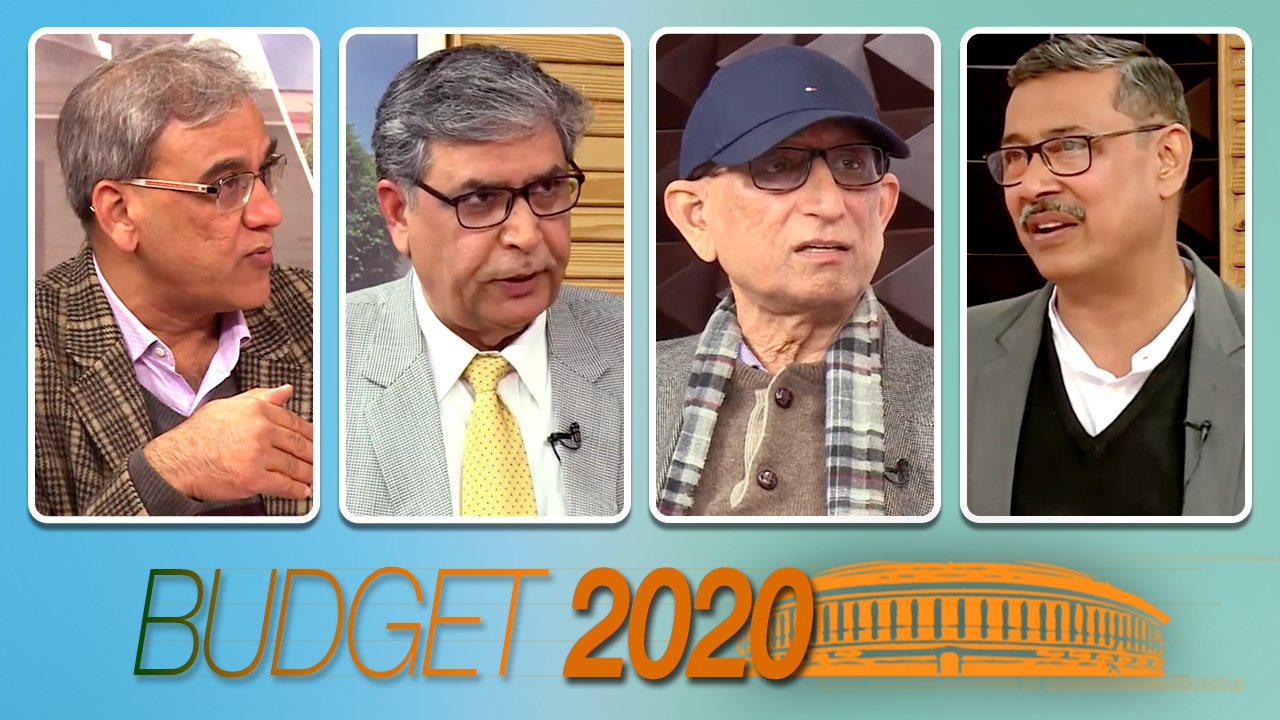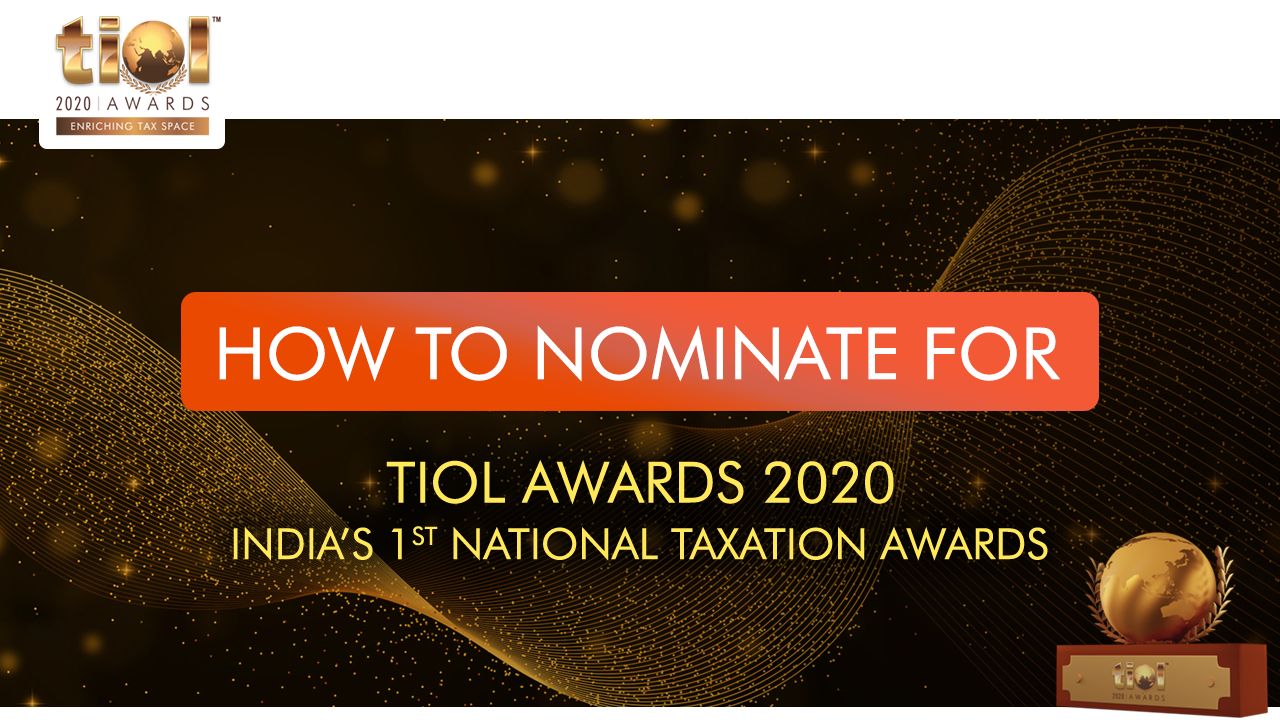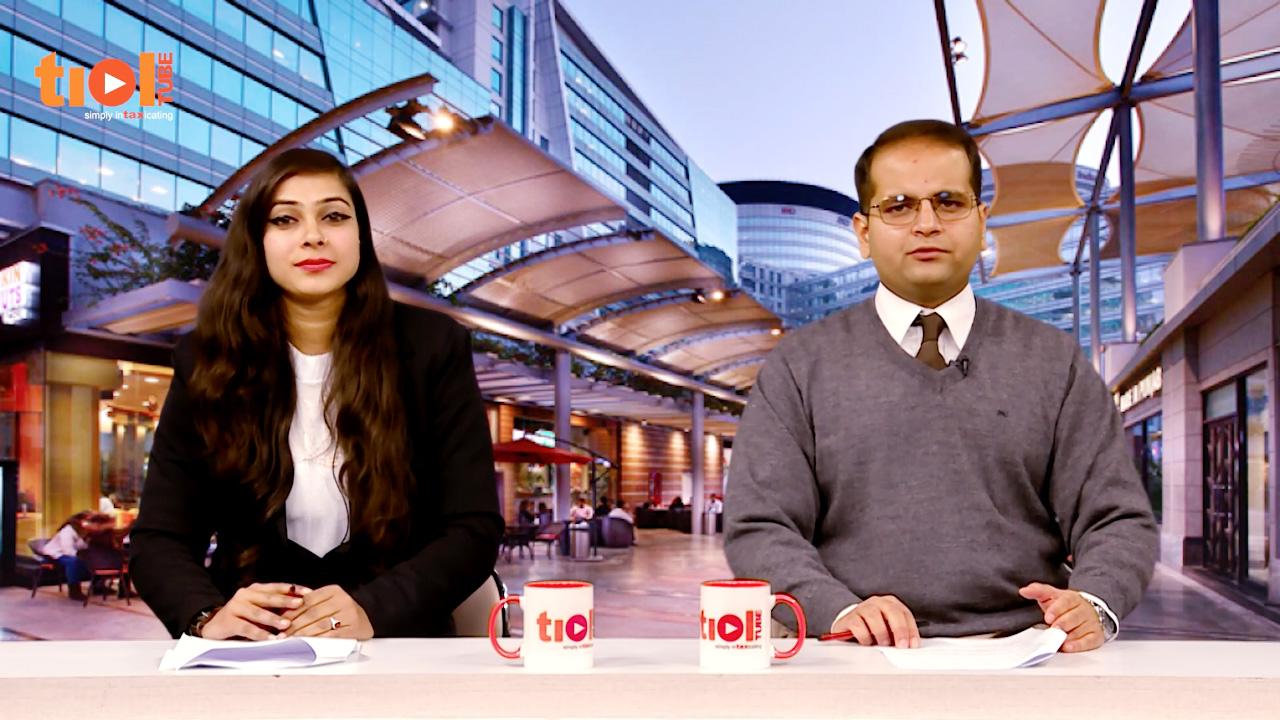|
SERVICE TAX
2020-TIOL-242-CESTAT-MUM
Suraj Laxman Mundhe Vs CCT
ST - The assessee was charged with service tax, being recipient of Construction of Complex Service - During the relevant period, the assessee sought refund of tax following the decision of the High Court of Delhi in Suresh Kumar Bansal v. Union of India declaring that in absence of machinery provision for segregation of service component of consideration, the levy would be ultra vires - On adjudication, the refund claim was rejected by following the decision of the Bombay High Court in Maharashtra Chamber of Housing Industries v. Union of India and Others which upheld the validity of levy including the Explanation inserted in Section 65(105)(zzh) of the Finance Act 1994, took precedence over that of any other high court and that the assessee failed to establish that the assessee who rendered taxable service, had discharged the tax liability in full - Such findings were sustained by the Commr.(A) - Hence the present appeal.
Held - The dispute in Maharashtra Chamber of Housing Industries v. Union of India and Others arose from the incorporation of a legal fiction to distinguish rendering of service from supply of goods in a composite transaction, the taxability of which was itself not denied - In Suresh Kumar Bansal v. Union of India the approval accorded to the legal fiction by the High Court of Bombay was not discarded but its implementation was discarded in the absence of a mechanism in the statute for isolating the value of service in a composite transaction - Hence there is no bar on the taxation of such composite transaction - Both decisions pertain to the period when the description of each & every activity that was intended to be taxed was enumerated separately and distinctly - W.e.f. 01.07.2012, the definitional framework of existing entries and any other service was erased to render all activities apart from those in the negative list, to be liable to tax - From the decision in Suresh Kumar Bansal v. Union of India it is clear that the absence of mechanism for implementation was relevant when the levy could not exceed the description u/s 65 of the Finance Act 1994 - Thus the decision in Suresh Kumar Bansal v. Union of India applies only when the activity is established as taxable within the legal fiction - Besides, the dispute in the present case pertained to the inclusion of tax in the amount charged in the invoice & it was not an appeal against rejection of a refund claim - While specific directions were issued on handling of tax deposited, the consdderation of claim for refund u/s 11B of the CEA 1944 was not part of the document - The applicability of the scheme of the negative list as well as the eligibility for refund is not decided upon in the order especially as the claim is not a consequential relief ordered by the High Court, but needs examination in the context of Section 11B of the CEA 1944 - Hence the order in challenge is quashed and the refund claim is restored for fresh consideration so as to ascertain the assessee's eligibility on the extent to which taxability under the negative list is impacted by the judgments cited: CESTAT
- Case remanded: MUMBAI CESTAT
2020-TIOL-241-CESTAT-CHD
MPA Marketing Pvt Ltd Vs CCE & ST
ST - The assessee-company is engaged in photography service and paid service tax on the same - For the relevant periods, the assessee reflected certain miscellaneous receipts on its balance sheets and based on the same, SCN was issued proposing to raise duty demand - On adjudication, the proposals in the SCN were confirmed, along with demands for interest and penalty - Hence the present appeal.
Held - The Revenue failed to prove that the miscellaneous receipts shown by the assessee are part of photography service - It is solely an assumption that miscellaneous receipts are part of photography service - Without any evidence and record, on miscellaneous receipts shown by the assessee in its balance sheet, no service tax can be demanded from the assessee - This follows from the decision of the Tribunal in CCE, Ludhiana vs. Mayfair Resorts - Hence in absence of any evidence placed on record by the Revenue, the demand for service tax is not sustainable: CESTAT
- Assessee's appeal allowed: CHANDIGARH CESTAT
CENTRAL EXCISE
2020-TIOL-254-HC-MAD-CX
Principal Commissioner of GST & CE Vs Indusind Bank Ltd
CX - (i) Whether in the facts and circumstances of the case, the Tribunal is correct in law to dispose the Appeal as file closed, when there is no provision under section 35C(1) of Central Excise Act, 1944 to close the appeal for statistical purposes without going into merits (ii) Whether in the facts and circumstances of the case, the Tribunal is right in disposing the appeal as file closed based on the issue pending before the larger bench of the Tribunal which is not the only issue involved in the present case. Held: Court is rather surprised with the reasons assigned by the Tribunal to close the proceedings - the Tribunal noted that the matter was referred to the Larger Bench of the Tribunal - therefore, one of the two options that could have been exercised by the Tribunal is to keep the matter pending before the Tribunal till a decision is arrived at by the Larger Bench - the second option is to remand the matter for de nova consideration to the adjudicating authority and direct the adjudicating authority to await the decision of the Larger Bench - unfortunately, the Tribunal did not exercise any of these two options - therefore, this Court would be well justified in interfering with the order passed by the Tribunal - the order passed by the Tribunal has to be set aside and is, accordingly, set aside and the matter is remanded to the Tribunal with a direction to the Tribunal to await the decision, which is now pending before the High Court at Ahmedabad in the case of Housing and Urban Development Corporation Ltd. - substantial questions of law are answered in favour of the Revenue: HIGH COURT [para 5, 6, 8]
- Matter remanded: MADRAS HIGH COURT
2020-TIOL-240-CESTAT-BANG Venkateshwara Power Projects Ltd Vs CCT
CX- Appellant is a manufacturer of sugar and molasses - during the course of verification of the records of the appellant, it was noticed that the appellant had paid ST on transport of goods by road on outward carriage and have availed ineligible cenvat credit to the tune of Rs.21.11 lakhs as input service during April 2016 to June 2017 - SCN issued - cenvat credit disallowed along with interest, penalty imposed - on appeal, the Commissioner (Appeals) rejected the appeal of the appellant, hence appeal before Tribunal.
Held: After the decision of the Apex Court in the case of Ultratech - 2018-TIOL-42-SC-CX , the CBEC has issued the Circular No. 1065/4/2018-CX dated 8.6.2018 wherein the field formations have been given the liberty to examine each and every case on the basis of the law laid down in various cases - it is also found that after the Circular issued by the Board, various Benches of the Tribunal have remanded the case back to the original authority to examine the eligibility of cenvat credit of ST on transportation of goods up to the customer's premises after the period w.e.f. 1.4.2008 - by following the ratio of the said decisions, the Bench is of the considered view that in view of the decision of the Madras High Court in the case of Bata India Limited - 2019-TIOL-1861-HC-MAD-CX and also in view of the Board's Circular dated 8.6.2018, the matter needs to be remanded to the original authority to verify certain factual aspects such as whether the sale is on FOR basis, whether the freight is integral part of the sale price, whether the duty paid on the value inclusive of freight amount etc. - consequently, in view of the Board's Circular, the matter is remanded back to the original authority to pass a fresh order after examining the various documents for the disputed period - accordingly, the appeal is allowed by way of remand and all the issues are kept open before the adjudicating authority : CESTAT [para6]
- Matter remanded: BANGALORE CESTAT
CUSTOMS
2020-TIOL-253-HC-DEL-CUS
Laxmi Enterprises Vs CC
Cus - Undervaluation - This appeal challenges the order passed by the CESTAT dated 27.2.2019.
Held: It appears that basically this appeal is challenging the valuation of the goods - so far as this challenge is concerned, the present appeal is not tenable in law before this Court for the following reasons - (i) a reading of the sections 130(1) and 130 (E) of the Customs Act, 1962 make it abundantly clear that no appeal would lie to the High Court, where the cases involve any issue relating to rate of duty or value of goods for the purposes of assessment, and that, in all such cases, the assessee would have to move the Supreme Court, under section 130(E); (ii) this Court has further clarified the matter in Commissioner of Service Tax vs. Bharti Airtel [2013 SCC OnLine Del 801] wherein it was held that the issue as to whether an appeal would be maintainable before the Supreme Court or the High Court, has nothing to do with the issue raised by the appellant in the appeal, but has everything to do with the order passed by the Tribunal - in other words, if the order passed by the Tribunal involves an issue relating to rate of duty or value of goods for the purposes of assessment, then, even if the said issue is not adjudicated in the appeal filed by the aggrieved appellant, the appeal would, nevertheless, lie to the Supreme Court and not to the High Court - in view of the aforesaid, this appeal is dismissed on the ground of jurisdiction : HIGH COURT [para 3, 4]
- Appeal dismissed: DELHI HIGH COURT
2020-TIOL-252-HC-MAD-CUS
India Rosin Industries Vs CC
Cus - Oleo Pine Resin - Writ Petition is filed against the impugned O-I-O dated 6.5.2003 passed by the 2nd Respondent, finalising the provisional assessment made and by levying an Additional Duty of Customs @16%. Held: The position, as it stands today, is that in view of circular No.26/2004-Cus 31.3.2004, a certificate from the Chamber of Commerce or a Government Agency of the supplying country to the effect that the product has been produced/extracted without the use of power, can be accepted for the purpose of exemption of customs duty under heading of 1301.10 of the CETA - the said circular is based on an earlier decision of the CEGAT, wherein the exemption has been allowed on the basis of a simple declaration by the supplier, which decision has become final - since the CEGAT had earlier held that a simple declaration evidencing that the product was manufactured without the aid of power would suffice for the purpose of granting exemption from payment of customs duty, there is no justification on the part of the second respondent herein to hold otherwise in the present impugned order - as such, the respondents are not justified in rejecting the declaration given or the certificate issued by the Government Agency of the Supplying Country, which would be sufficient for the purpose of the exemption, in view of the circular dated 31.3.2004 - the appeal remedy, if directed to be exercised at this stage, would be a futile exercise - for all the foregoing reasons, no justification found in the O-I-O dated 6.5.2003 passed by the 2nd Respondent - accordingly, the same is quashed and the Writ Petition stands allowed: HIGH COURT [para 7, 10, 11, 12]
- Petition allowed: MADRAS HIGH COURT
2020-TIOL-251-HC-MAD-CUS
Green Port Shipping Agencies Vs CC
Cus - Writ Petition has been filed challenging the impugned letter dated 11.4.2019, sent by the first respondent rejecting the representation given by the petitioner, seeking for inspection of the documents based on which SCN was issued by the first respondent under section 124 of the Customs Act, 1962 [Act]. Held: In the instant case, even though the SCN refers to a Import General Manifest [IGM] allegedly filed by the petitioner, which has been denied by them, the same has not been furnished to the petitioner nor the petitioner was allowed to inspect the said document by the first respondent under the impugned letter - even though the impugned letter is only a communication, but since the communication discloses that the first respondent has rejected the request of the petitioner to inspect the IGM, allegedly filed by the petitioner nor satisfied the requirements of section 124 of the Act that reasonable opportunity will have to be given to the petitioner before final orders are passed, this Court deems it fit that the petitioner must be furnished with a copy of the IGM allegedly filed by them, which is relied upon by the first respondent in their SCN dated 14.2.2013, issued by them to the petitioner under section 124 of the Act - in the result, the first respondent is directed to furnish a copy of the IGM to the petitioner within a period of two weeks - after furnishing a copy of the IGM to the petitioner, the first respondent shall pass final adjudication orders after affording sufficient opportunity to the petitioner, including granting them the right of personal hearing within a period of eight weeks thereafter - with the aforesaid directions, this Writ Petition is disposed of : HIGH COURT [para 6, 7, 8]
- Petition disposed of: MADRAS HIGH COURT
2020-TIOL-250-HC-UKHAND-CUS
Multiwal Duplex Pvt Ltd Vs CC & CE
Cus - Import of mixed paper waste along with used plastic waste - Confiscation ordered of both the imported goods - appellant before High Court against the order of CESTAT dated 21.1.2015. Held: It is evident from the order of the Tribunal that, as against the total quantity of 96.65 M.T. of goods imported, more than 20 per cent thereof i.e. 19.83 M.T was used plastic waste, and it is only the remaining 76.82 M.T. which was used paper waste collected as roads sweepings - section 119 of the Customs Act, 1962 [Act] stipulates that any goods, used for concealing the smuggled goods, shall also be liable for confiscation; and since a huge quantity of 19.83 M.T. of used plastic was imported, without declaring such import in the Bill of Entry and without obtaining clearance from the DGFT, the authorities had rightly held that the appellant had used the imported goods (used paper waste) to conceal smuggled goods (i.e. used plastic waste) - the submission of the appellant that it is the exporter who is responsible, and the appellant who had imported the goods bonafide cannot be subjected to fine and penalty, as he was unaware that the goods imported by him also contained used plastic, is not tenable - the Tribunal has noted that Clause 7 of the contract provided for pre-shipment inspection of the imported goods - as it was open to the appellant to inspect the goods, before they were exported to India (prior to shipment), he could not absolve himself of blame and claim to be unaware that the shipment contained used plastic of a considerable quantity - an appeal to the High Court is available, under section 130 of the Act, only if the case involves a substantial question of law - the Tribunal is the final Court of fact, and it is only if such findings are either perverse or are based on no evidence, would they give rise to a substantial question of law warranting interference in proceedings under section 130 of the Act - the findings recorded by the Tribunal do not suffer from any such infirmity nor does a substantial question of law arise for consideration in this appeal - no reason seen, therefore, to entertain this appeal in the exercise of the Court's jurisdiction under section 130 of the Act - the appeal fails and is, accordingly, dismissed : HIGH COURT [para 8, 9, 10, 11]
- Appeal dismissed: UTTARAKHAND HIGH COURT
2020-TIOL-239-CESTAT-MAD
CC Vs Chakrapani Vyapar Pvt Ltd
Cus - Refund- Revenue is in appeal contending that the refund was sanctioned without verification of the supporting documents - Respondent assessee submitted that it is evident from the findings of the adjudicating authority that there has been complete satisfaction with regard to the assessee's claim as well as the supporting documents and, therefore, the appeal is frivolous and has to be dismissed with costs.
Held: It is clear that the Adjudicating Authority has sanctioned the refund after going through the original documents placed on record, a copy of which was also filed before the First Appellate Authority - Revenue having not been able to locate the original documents is apparently seeking indulgence at the cost of the taxpayer and which cannot be appreciated - appeal being not only devoid of merits but also being frivolous is dismissed: CESTAT [para 4, 6, 7]
- Appeal dismissed: CHENNAI CESTAT
2020-TIOL-238-CESTAT-KOL
Santosh Kumar Poddar Vs CC
Cus - On 29.6.2015, the Custom Officers apprehended one ShriAmolDeshmukh with 20 pieces of Gold Biscuitsincluding two cut pieces with silver beads - goods seized, person arrested and produced before the Judicial Magistrate and thereafter he was released on bail on 30.6.2015 - Shri Santosh Kumar Poddar, Director of M/s.Anjani Gold Private Limited claimed ownership of the seized goods on behalf of the Company and submitted that the gold and silver beads were part of their stock-in-trade and the gold under seizure was from the lot purchased from the State Bank of India which they had sent to Shri Ganesh Haridas Kadam for melting thereof - SCNs issued to all the three [appellants] - vide impugned order, the Commissioner ordered for absolute confiscation of the entire seized gold under sections 111(b) & 111(d) of the Customs Act, 1962 [Act] and penalty of Rs.5 lakhs on Shri Deshmukh, Rs.6 lakhs on ShriKadam and Rs.6 lakhs on ShriPoddar under section 112(b) of the Act was imposed - another penalty of Rs.50 lakhs on ShriPoddar under section 114AA of the Act was imposed - appeal to CESTAT.
Held: The appellant is the Director of a Company admittedly dealing with gold bullion - it is also on record that apprehension of ShriDeshmukh with the subject gold was not brought to the notice of the claimant before he was produced to the Judicial Magistrate under arrest -on perusal of the statements recorded by the Revenue, it reveals that at no point of time ownership of the gold was agitated -the seized gold was duly recorded in the Books of Accounts of M/s. Anjani Gold Private Limited which was admittedly computerized -the purchase invoice issued by State Bank of India showing that 198015.52 grams in Customs auction is also not disputed by the Revenue - thus, the obligation under section 123 of the Act has been discharged by the claimant of the gold - the revenue has not been able to adduce any evidence to prove that the subject gold has been illegally imported by the appellants and the order of confiscation under section 111(b) and under section 111(d) of Act is not sustainable as imposition of penalty under section 112 is consequential to confiscation of goods under the Act - moreover, imposition of penalty on the Director of a Company without making the Company a party to the proceeding is not justifiable and, accordingly, set aside -more so, when the confiscation of the seized goods is set aside, penalization thereof is not maintainable upon the appellants herein - in view of the above, the impugned order is set aside and the appeals are allowed with consequential relief to the appellants : CESTAT [para 9, 10, 11]
- Appeals allowed: KOLKATA CESTAT
|
|








